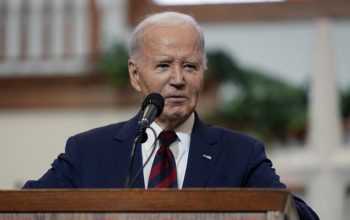news
GFDD and FUNGLODE Attend UN Conference on World Financial and Economic Crisis and Its Impact on Development
June 26, 2009
Global Foundation for Democracy and Development (GFDD) and Fundación Global Democracia Desarrollo (FUNGLODE) attended the United Nations Conference on the World Financial and Economic Crisis and Its Impact on Development, June 24-26, 2009, at the UN headquarters in New York City. The objective of the event was to assemble world leaders to assess the causes and impacts of the crisis, develop
strategies to promote economic recovery and sustainable development and discuss how to reform the international financial architecture.
During the Plenary Meeting on June 24, UN Secretary General Ban Ki Moon reminded heads of state and high-ranking government officials that in the midst of multiple global crisis – food, fuel, climate and economy – action must focus on the needs of societies’ most vulnerable. He warned that the financial
crisis could elapse for years, calling attention to the 50 million jobs that could be eliminated by the end of 2009 and the billion people worldwide that go to sleep hungry. He underscored the need for a multilateral response and referred to the $US 1 trillion global stimulus package that he called for, which was later agreed to by G20 leaders during their April meeting in London. He went on to identify three areas of action that need to be immediately realized: the collection of real-time
data on how the crisis is affecting the poorest; fulfillment of internationally agreed upon development assistance commitments and reform of international financial institutions. “Challenges are linked. Our solutions must be too,” concluded Moon.
President of the UN General Assembly Miguel d’Escoto Brockmann took the discussion further, linking the cause of the financial and economic crisis to “… an egoistical and
irresponsible way of living, producing, consuming and establishing relationships among ourselves and with nature that involve systematic aggression against Earth and its ecosystems and profound social imbalances …” He advocated for a new development paradigm of social coexistence that values lifestyles and “personal, social and planetary well-being.”
During the three-day conference, heads of state, high-ranking government and UN
officials and experts assessed how the collapse of the financial sector in the developing world has infiltrated all economic sectors in all regions of the world, disproportionately affecting developing countries, in particular least developed countries (LDCs), small island developing states (SIDS), landlocked developing countries, African countries and countries emerging from conflict. Stakeholders acknowledged the unprecedented global job loss and stressed how reductions in exports,
foreign investment, remittances, aid and tourism, in addition to commodity price volatility – consequences of the severe contraction of the global economy — are adversely impacting development in low-income and middle-income countries. Government representatives, UN officials and experts affirmed that the four decades of progress made in achieving the Millennium Development Goals (i.e. poverty, hunger, health, education, maternal and child mortality) were at risk of being
reversed. They voiced concern regarding the looming threats of the food, fuel and climate crisis. They urged that member states fulfill their Official Development Assistance commitments and called for the reform of international financial institutions and emphasized the need for employment creation, particularly the creation of green jobs. Stakeholders agreed that wide-scale regulatory reform must be implemented and advocated for a global stimulus package that helps the poorest of the poor.
They warned against protectionist measures and expressed their commitment to a new form of multilateral cooperation.
The developed countries pledged to increase their official deve






